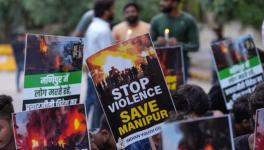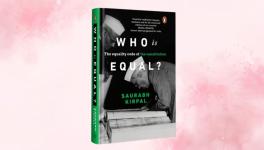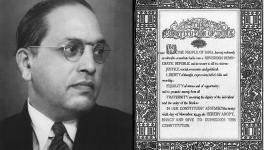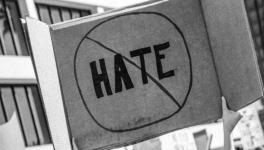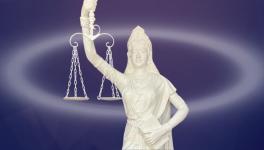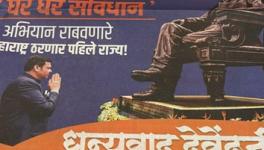Why is Equality Before Law on Paper Not Yet a Ground Reality in India?
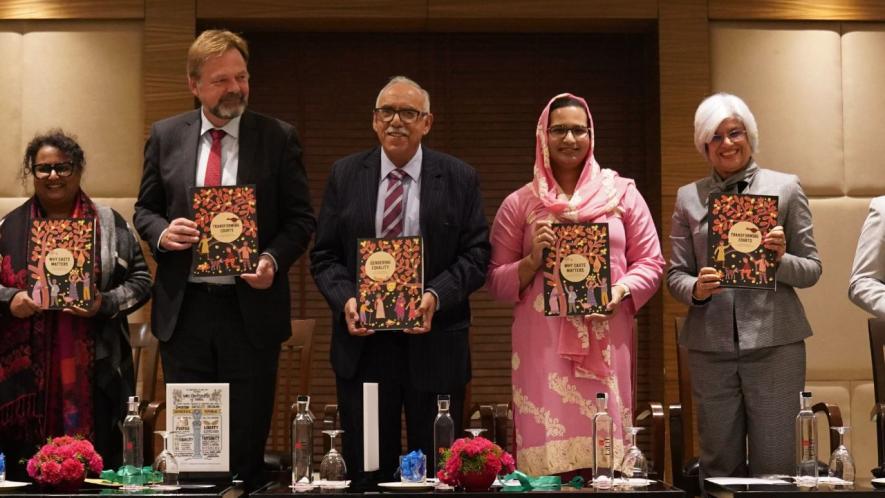
At a time when there’s outrage of the Union Home Minister’s remarks “insulting” B R Ambedkar, a recent book launch in the Capital city underlined the need for ensuring “equality”, as enshrined in our Constitution, and the crucial role that courts play.
The launch event saw the release of resource books of court decisions on equality’, a useful compilation for legal activists, students and legal practitioners.
The books are titled Gendering Equality (Court Decisions on Women Rights in India), Why Caste Matters (Court Decisions on Caste Discrimination in India), Disability Justice (Court Decisions on Disability Rights in India).
“These books will help people, particularly the marginalised sections who are unable to improve their life due to lack of information and lack of education,” said Philipp Ackremann, the German Ambassador, who attended the event.
This programme was organised by the Centre for Law and Policy Research (CLPR) and supported by the Embassy of the Federal Republic of Germany. CLPR said it was dedicated to “making the Constitution work for everyone through law and policy research, social and governance interventions and strategic impact litigation.”
In his keynote address, Justice Deepak Gupta (Retd.), former judge of the Supreme Court, said: “Courts can't change social norms; that has to come from within society. But courts must act as catalysts to encourage change and to discourage discrimination."
He said the “Preamble of the Constitution that every citizen of India has the right to get social, economic and political justice. On the other hand, there is also equality of status and of opportunity.”
“When we read the preamble of our Constitution, we find it has all the human values. But the ground reality is quite different. A large number of the people are deprived of their basic rights. These books will help social activists who work with the marginalised community,” he added.
Justice Gupta pointed out that our social structure was based on inequality. He quoted Ambedkar: “On the 26th January 1950, we are going to enter a life of contradictions. In politics we will have equality and in social and economic life we will have inequality. In politics, we will be recognising the principle of one man one vote and one vote one value.”
“Political democracy cannot last unless it lies at the base of ...social democracy. What does social democracy mean? It means a way of life which recognises liberty, equality and fraternity as the principles of life...Without equality, liberty would produce the supremacy of the few over the many,” he cited Ambedkar.
Justice Gupta expressed grave concern over the situation on the ground. “How long shall we continue to live this life of contradictions? We have untouchability, caste discrimination, manual scavenging even today. We are not free to do inter-caste marriage or inter-religion marriage. Atrocities on Dalit families and honour killings still exist in our society and affect common people. Hence, fraternity is very important. There is a need to sensitise society that all human beings are equal.”
Aqsa Shaikh, Professor, Hamdard Institute of Medical Science and Research, who is also a transgender rights activist, said: “There are many obstacles to access law. Many social communities are unable to get justice, such as transgender persons. They have no access to courts for justice... Most laws remain on paper, and should be implemented.”
Commenting on the state of justice, she said, “How can we hope for justice for Dalits and Adivasis when even the CJI of the Supreme Court (D.Y. Chandrachud) says he takes decisions on the wish of God. Our judiciary is affected with casteism. Many cases of Dalit atrocities have been pending in courts for decades. Delay and justice are very common. We get only taarikh pe taarikh (dates after dates). Justice delayed is justice denied. Fast track courts are required for quick justice.”
Beena Pallical, Director of National Campaign on Dalit Human Rights (NCDHR), said, “We have laws but these laws are not implemented at the ground level. For example, manual scavenging is prohibited according to law but still exists in our country. It is an inhuman and heinous practice and against the dignity of citizens. If people of our society, particularly Dalits are involved in manual scavenging, how can they enjoy the right to live with dignity according to the Constitution’s Article 21?”
Meenakshi Arora, senior advocate, Supreme Court, raised the issue of sexual violence at workplace. She cited the example of Vishakha. Also, she shared the experience of a woman who was the victim of sexual harassment. Her colleagues were not cooperative after she filed a case. “Due to our social structure, it is very difficult to get justice. But we should not lose hope and courage to get the justice. A person can get justice, after his/her continuous efforts,” she added.
Satendra Singh, Professor, University College of Medical Sciences and Director, GTB Hospital, Delhi, also participated in the panel discussion.
In a nutshell, the book launch programme and panel discussion were of great help to the audience, who came to know many new things about law and the ground reality of justice in our country.
In conclusion, one can say that there may be some lacunae in the laws, there may be flaws in our judicial system, but there is no single reason that eludes equality on the ground. It is our discriminatory social justice system, our political system, as well as civil society that are responsible for obstacles in implementing existing laws. This is the main reason why laws are equal for all on paper, but are not being implemented impartially at the ground level.
The writer works with the Safai Karamchari Andolan.
Get the latest reports & analysis with people's perspective on Protests, movements & deep analytical videos, discussions of the current affairs in your Telegram app. Subscribe to NewsClick's Telegram channel & get Real-Time updates on stories, as they get published on our website.










